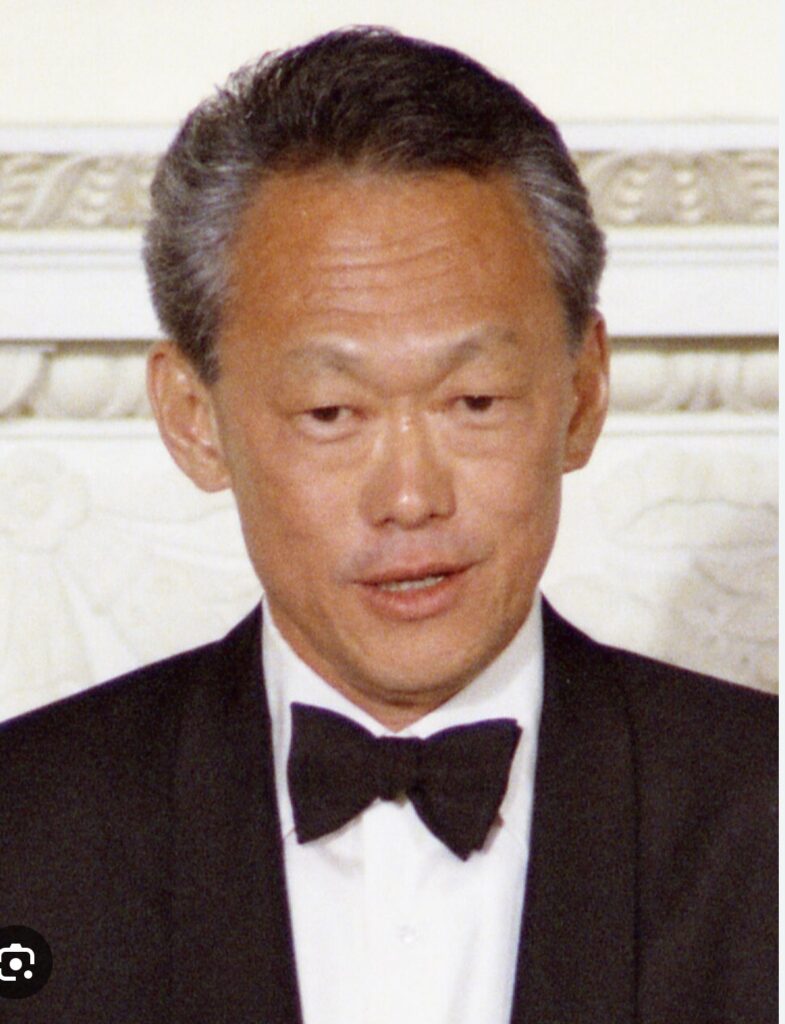Each person in this world has different things which they may want to remember as part of life’s journey. Certain conversations, a few interactions, small but varied and different things, each person to his own.
It’s probably no secret to most of you who are reading this at the moment that the array of interactions that I have personally experienced is somewhat anomalous relative to… Most people, but even I would not have expected the one that I took part in just yesterday.
I am officially one of the only people who can say that they have corrected Cambridge University.
Many of you are doubtless aware that I have a deep interest in history.
In particular, you likely know that I was motivated enough to write an entire book about the late Mr. Lee Kuan Yew – and interestingly, that is also what this interaction centers on.

Yesterday, while I was making a video, I tried to access a link commemorating the late Mr Lee. It was indexed on Google and it was titled “Celebrating Lee Kuan Yew”.
On opening the page, I noticed something odd. There was no content.

Of course, the fact that there was no content is explainable on account of a number of different possible reasons. Perhaps it is an issue of technology, maybe it was the device, or perhaps on a different operating system I would get a different result. On this day though, thinking it out, I decided to confirm my suspicions only to realize that the page was blank on every possible iteration of it.
Under ordinary circumstances, I suppose most people would let the matter rest, but on this day, something possessed me to drive directly to Fitzwilliam College.
By consequence, you will be able to access the Celebrating Lee Kuan Yew link right over here after the college makes the changes.
Link: https://www.fitz.cam.ac.uk/celebrating-lee-kuan-yew
Thank you, Fitzwilliam College, for responding to the email that I sent within just an hour after I had sent it on a Sunday afternoon UK time. It was surely not a workday, but you answered to the call of duty nonetheless. Of course, it might have been a matter of a little less urgency had I not tagged Singapore’s Prime Minister’s office in the chain of correspondence as well as SM Lee, with whom I had corresponded a few times before – now if we consider how I could have approached this interaction differently, I suppose I could have just waited for Fitzwilliam to respond the very first time rather than just immediately cc-ing everybody in an email chain.
But I guess that in my mind, I wanted the fastest possible solution and didn’t think that it would be the easiest way.
Now, how do we process that?
Is that ruthless behavior or is it pragmatic behavior?
Is it perhaps a measured combination of both?
And whatever it might reflect, is that good or is that bad?
I suppose that’s an open question – not for me to decide, but rather for historians to interpret if they consider it relevant or consider me relevant.
For what it’s worth, if people were to try to unravel the thread of everything that had come to pass, I imagine that an interesting narrative would come about – I suppose it is for other people who are not me to decide upon the meaning of these events and to then narrate them, in part or in whole, if they consider them worthy for presentation or learning, to the next generation.



